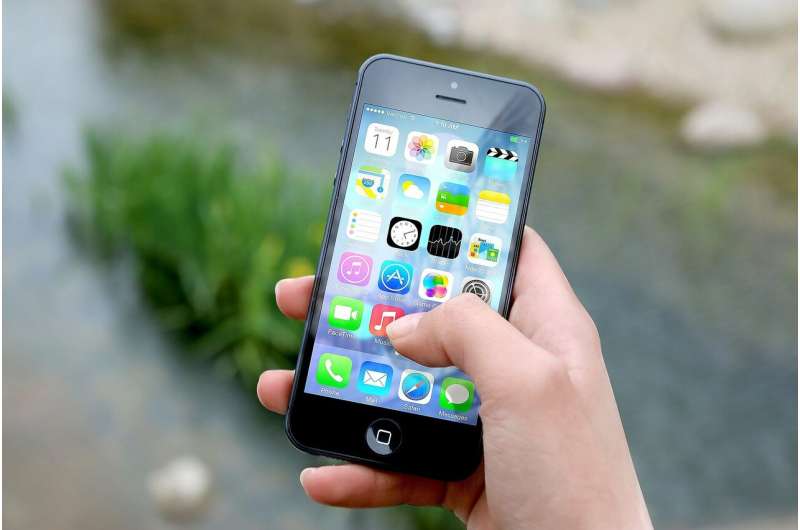Smartphones could help detect heart conditions

A smartphone-based heart monitor could be up to five times more effective at diagnosing heart rhythm problems than standard tests, research suggests.
Using the technology could also help emergency departments working within the NHS save time and money.
Researchers say the results suggest that emergency departments around the country should consider incorporating the device into standard care.
Palpitations
Around 300,000 people attend emergency departments each year at UK hopitals with palpitations or feeling faint.
These conditions are usually harmless but they can also be caused by serious underlying heart rhythm disorders, which have to be treated.
Underlying cause
Detecting the underlying cause is often difficult as by the time the patient has made it to hospital they may have recovered and electrocardiogram (ECG) recordings of their heart rhythm appear normal.
Researchers led by the University and NHS Lothian carried out the first controlled trial of a heart rhythm device – known as AliveCor KardiaMobile – in more than 200 people presenting with heart palpations or near blackout at 15 hospitals across the UK.
Smartphone ECG
The device is stuck to the back of a smartphone or tablet and is activated by the patient when they experience symptoms such as fluttering.
The ECG result can then be taken or sent electronically to a doctor.
Researchers gave one group of patients the KardiaMobile device to take home. The other group were not given the device and underwent standard care and were asked to attend hospital or their GP surgery if they experienced further symptoms.
Quicker diagnosis
After 90 days ECGs taken by the device allowed doctors to diagnose 56 per cent of patients in an average of 9.5 days.
This was compared with 10 per cent of patients given standard care who were diagnosed in an average time of 43 days.
Cost saving
The device also cut the cost of an average diagnosis by more than £900.
The study was funded by the British Heart Foundation and Chest Heart and Stroke Scotland and is published in eClinicalMedicine.
"We've shown that this device is an easy, cheap way to diagnose heart rhythm problems that usually see people attending emergency departments several times before they're diagnosed. For those with harmless palpitations, this device can quickly give reassurance, whilst for those with serious underlying heart conditions it can act as a lifesaver. We are now calling for this technology to be rolled out in emergency departments across the country," says Dr. Matthew Reed, Emergency Medicine Research Group Edinburgh and University of Edinburgh.
"Palpitations, normally experienced as a temporary but highly noticeable rapid or irregular fluttering of the heartbeat, need to be investigated by a doctor to reassure people experiencing them that they are harmless or to diagnose and treat any underlying heart problem. By taking advantage of the tech that we carry around in in our pockets every day, this cutting-edge device makes sure that it is easy for people experiencing palpitations to directly record their heartbeat and relay the information rapidly to a doctor and improve their diagnosis. If offered to those who attend hospital after an episode of palpitation this device could spare many people from further anxiety, save the NHS money, and also save lives," says Professor Jeremy Pearson, British Heart Foundation.
More information: Matthew J. Reed et al. Multi-centre Randomised Controlled Trial of a Smartphone-based Event Recorder Alongside Standard Care Versus Standard Care for Patients Presenting to the Emergency Department with Palpitations and Pre-syncope: The IPED (Investigation of Palpitations in the ED) study, EClinicalMedicine (2019). DOI: 10.1016/j.eclinm.2019.02.005




















